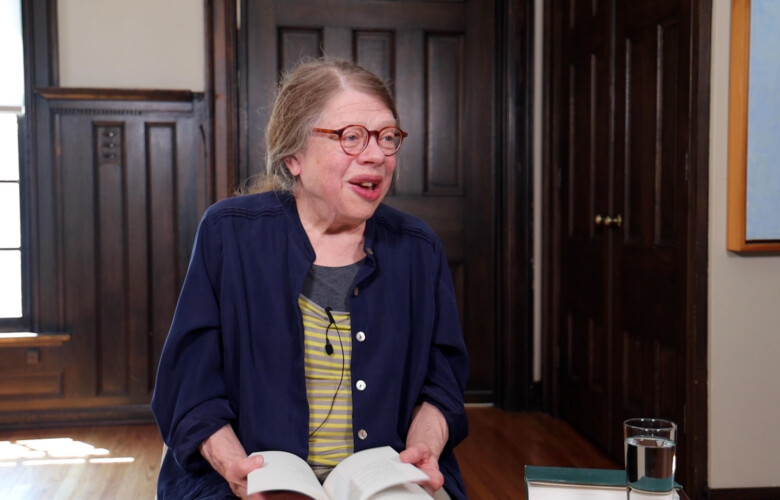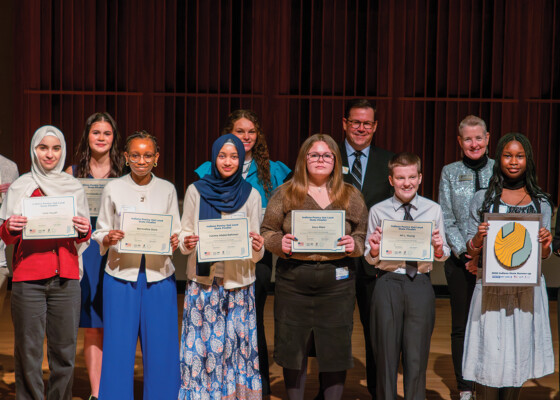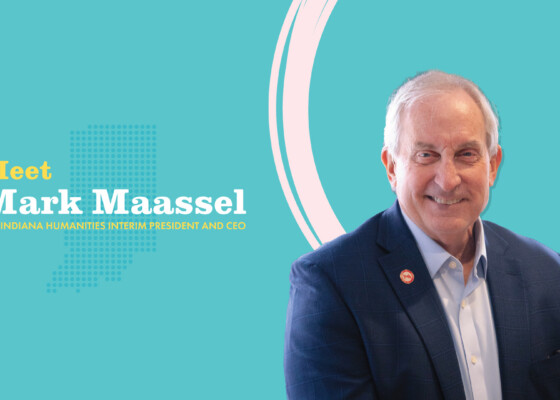Conversation with Marianne Boruch
April 24, 2024Marianne Boruch is a bedrock of the literary community in Indiana. We had a chance to sit down with the poet and essayist to chat about the creative process, writing in Indiana and poetry.
Q: Having taught at Purdue University for many years and established the MA program in creative writing, what have you found most rewarding about mentoring and working with emerging writers?
It’s a rare privilege and pleasure to have had an honest-to-god day job that allowed me to think nonstop about something as astonishing as poetry, that most beloved and ancient literary form we have. It’s crazy, really. Probably an historic blip, a keyhole we slipped through. It amazes me still though I’ve gone rogue and emeritus from Purdue in 2018.
That said, besides feeling blessed in a remarkable secular way, I’ve learned how to TALK about the whole practice of making poems through teaching, and have had wonderful students from the minute we opened our graduate program in 1987. I was hired to develop it, to figure out the inner workings. The idea for such a program had been floated and in-name-only set in motion by poet Neil Myers and fiction writer Bill Stuckey, who had been here a couple of decades. But it had no inner organs. Only one workshop class was on the books and endless paperwork to be submitted for program and new course approval by the powers that be, etc. No students here yet, no literary magazine. That was my job, to teach and set all that up, get through the intricate overwhelming machinery and tedious underground pathways of Purdue’ administration. But it happened, first the MA then finally the MFA. When I came, not even the art and design programs had the MFA at Purdue, which struck me as crazy-preposterous. Only theater tech could boast that degree on campus. Really shocking. But our small, cozy, rigorous program for writers was finally sorted, as the Brits and the Aussies say. The program was a genuine success; wonderful writing has come out of it, poets and fiction writers with jobs and books, and people with rich inner lives.
In short, Purdue gave us a place, time and resources, an occasion to make art. Of course, now they have taken it away. But that’s a whole other story, way less happy.
The fact is that working with students over time is a rare and lovely thing. Our MFA program was three years — long enough to matter a lot, short enough to keep the door open to the larger future. I always though the second year the best — people got used to the place and the work by then, had established crucial writerly habits before the third year when worrisome thoughts about what’s next loomed up. I had a ringside seat watching young poets develop their way with language, Imagination, the shape and substance of meaning Itself. How we think as humans, and as spirits. How cool Is that?
Q: How has teaching influenced your own creative process?
Honestly, I can’t know that really. They are separate practices, separate obsessions and addictions but, sure, they are hopelessly intertwined in time and space. I teach a certain way because I guess I’m a certain kind of poet. What kind I have no idea! Every poem I write seems its own strange creature.
I know that teaching, especially undergrads new to the art, made clear to me how important IMAGE — the beloved concrete particulars of our days and nights — IS to poems that have any life in them. How both the world in here — can you see me pointing to my heart? — and the great world out there are connected and also the ways they NEVER can be. What I loved to see was my students getting more and more absorbed in the process (not the final product) as the semester moved on, how they began to see that a poem could (and perhaps must) surprise them. I learned this slowly, and am still learning: intention isn’t worth a damn. Follow the poem where it must go. Be LED by the poem. Don’t boss it around. Listen to what you have, what drops into your begging bowl and go from there. That’s hard. And may take many revisions to SEE what the poem wants, to tell you.
Q: How has Indiana influenced your work?
I grew up In Illinois, in and near Chicago, but I went to Girl Scout camp in Indiana, and my family’s only adventure most years was a few days at Turkey Run. Of course, we loved what my mother dreaded: the mighty TRAIL NUMBER THREE. My grandparents lived in a tiny town in central Illinois, Tuscola where I spent a lot of the summer, so though my childhood was mostly urban, those corn and soybean fields —what Michael Martone is fond of calling “the flatness”— was the landscape I loved. But also the woods. That’s still true: the seemingly empty expanse, then a deep friendship of trees. I’ve written about that. We’re lucky to be in this so-called “flyover” state. The hell with those coastal sorts, looking down to us over their diet cokes through the lofty airplane windows.
Q: What are your thoughts on the role of poetry in society?
Unlike in many other countries, we may not have a “role.” Maybe it’s great that we are spared that. I know the 19th-century British poet Percy Shelley famously claimed that “poets are the unacknowledged legislators of the world,” but that was probably a lot of bull then, too (except for the “unacknowledged” part!) A bit over the top, don’t you think? I’m fond of the fact that poems are secret, communal but solitary, like grief and love are secret and protect us somehow. One discovers a poem or better- it discovers you, often without warning. You read one by accident and think suddenly yes, that’s IT. That’s what it’s like inside. But you don’t even have to say that. The best words make you wordless. You step out of time.
Q: Who are your favorite Indiana authors?
So many. Really. For starters: Susan Neville, Don Plat, Karen Kovacik, Barb Shoup, Adrian Matejka, Helen Frost, Rosalie Moffett, Jacob Sunderlin, Lindsey Alexander, Maryam Ghafoor, Mark Neely….



